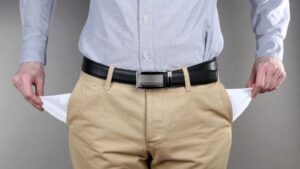January 31st 2022: Self Assessment and beyond?

Despite a boom in industry, as reported in our previous blog, it has still been a turbulent year for the self-employed trade who are experiencing rising business costs, and trying to meet demand against material availability and available workers. And just as the leisure and hospitality industries thought things were looking brighter, and invested in ‘Christmas’, renewed COVID fears and ‘Plan B’ means we are looking at a mixed bag of uncertainty, as a large tax bill looms and the new tax year looking pretty hard to plan for if you’re self-employed.
More stability in 2022?
We spoke with Sam Holliday, Development Manager, of the FSB (Federation of Small Businesses), who played a pinnacle part in securing Government support for the self-employed during the pandemic, about what to expect post-tax payment and during 2022.
“We have now had nearly two years of disruption, uncertainty and worry and in many ways it is remarkable that so many of our amazing self-employed run businesses have managed to survive the onslaught they have faced.”
“Although the days of full-on lockdowns are hopefully behind us, the truth is we are not yet out of this crisis or free of its after-affects. Recent changes in restrictions have created more nervousness for businesses and their customers and when you add in the higher tax bills that are on the horizon and major chain supply issues, those in businesses have a lot on their plate again.
“We will continue therefore to raise the importance to Government about helping SMEs and those in self-employment through this very uncertain period and would urge everyone to follow announcements closely in case any further national support is forthcoming. If it isn’t – and we are aware that the Government coffers are close to empty – businesses should continue to hit their tax deadlines to avoid further complications down the line, keep on good terms with their banks and other financial providers in case they need more support and try to continue as best they can to reassure and work with their clients.
“On a positive note we have seen in the past two years that customers really do seem to value their local small businesses and those in self-employment and that mutual respect and patience has ensured that despite everything that has happened there are still so many amazing, viable SMEs driving our economy. We must hope the current uncertainty is short-lived and that 2022 can finally deliver a year when those in self-employment can really start to reap the rewards many have been denied by this cruel disease.”
To find out more about the FSB and to find their social media links to monitor announcements that could affect you and your business, click here.
When is the tax deadline?
If you missed the deadline for filing a paper return (31st October 2020), you’ll need to submit your Self-Assessment tax return online and pay any tax due by 31st January. You’ll get a bill once you’ve filed your tax return which will outline how much you owe but this could take up to 72 hours from filing your return.

The 31st January payment takes into account any tax owed for the previous year, and is known as your ‘first payment on account’. Your ‘second payment on account’ is due in July. As this bill will incorporate the first year of SEISS grant tax repayment, some may find this payment is higher than anticipated.
We would recommend that you pay online as opposed to via post, which could see considerable delays due to the pandemic. You will also be able to view your receipt for payment instantly as opposed to requesting one with your postal payment and waiting for it to arrive through the post.
If you cannot pay your tax bill on time, contact the HMRC as soon as you can who may be able to apply a ‘Time to Pay’ arrangement to your account. If you are already aware that you will need extra time to pay, we would recommend contacting them now, as opposed to closer to the deadline as this is their busiest time of year. You can contact them via telephone or Webchat.
SEISS Grants
This year, to add to the tax payment matter, is the SEISS grant. A life-saving scheme for so many during the height of the pandemic, has brought with it some unexpected issues for some.
Some more fortunate traders who kept going through thick-and-thin during the pandemic now have higher than usual tax bills this coming January as the grant is taxable.

Those who haven’t stowed away enough may find this year’s bill hard to stomach. And the polarising effect is illustrated by those unable to recoup their losses and now face the 31st January tax payment. For some, it may be a good idea to speak directly with HMRC in advance of the deadline to find a more affordable payment plan.
First timer: How to complete your tax return
Here’s a handy guide to get you started.

Need a helping hand? Don’t worry, if this is the first time you have paid self-assessment, or paid it online, HMRC have some easy-to-follow resources available online to guide you through the process.
And as of 21st December, if your small business has been affected by Omicron, there may be some relief available to you via the Governments latest support measures. Find out more via the FSB here.
A-Plan continues to work with many self-employed or sole trader businesses during these turbulent times. If you would like to review your insurances, from van to liability, to ensure you can avoid any unnecessary financial risks over the coming year, we are here to help. Just give us a call, or pop into your local branch, we would be happy to help.


